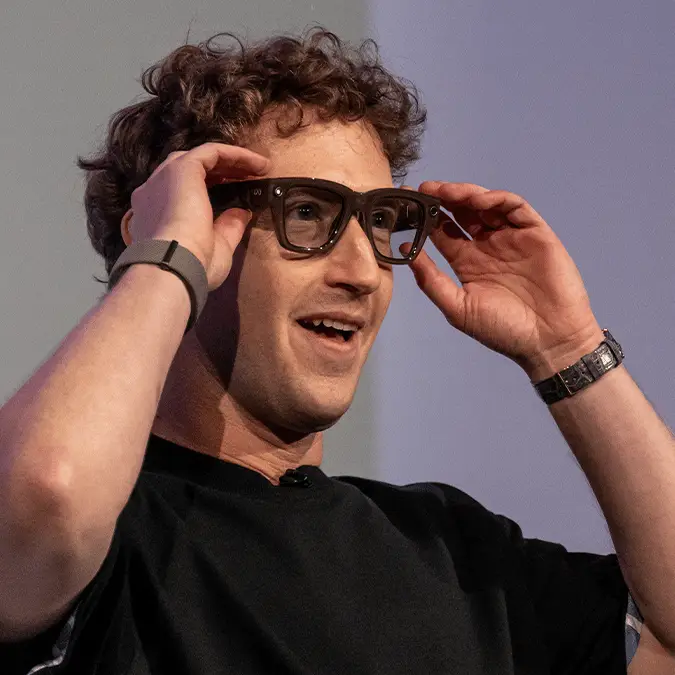
Meta unveils its RayBan smart glasses with a 'groundbreaking' display feature.
Meta has officially launched its most advanced smart glasses yet, introducing the Meta Ray-Ban Display which will be available from 30 September and prices at $799.
This latest product marks Meta's latest push into wearable AI technology as the company tries to keep pace with rivals like OpenAI and Google in the AI race.
CEO Mark Zuckerberg positioned these glasses as a major step toward what he calls 'personal superintelligence,' essentially giving users AI capabilities while remaining present in the real world.
Advert
"Glasses are the ideal form factor for personal superintelligence, because they let you stay present in the moment while getting access to all of these AI capabilities that make you smarter, help you communicate better, improve your memory, improve your senses, and more," Zuckerberg explained.
The Meta Ray-Ban Display offers full-colour high-resolution screen in one lens, plus a 12-megapixel camera where users can directly make video calls and view messages.
But perhaps the most impressive feature is the typing capabilities that completely change the way users interact with their devices.
The glasses come with an included wristband controller that translates hand gestures into commands, allowing users to respond to texts and calls through simple finger movements.
Moreover, the included Neural Band works like a smartwatch without a screen, wrapping around your wrist to detect various hand movements including pinches, swipes, taps, and rotations.
Users can even navigate using their thumb on a virtual directional pad that the band recognises through touch.
The glasses connect to both Android and iPhone devices via Bluetooth, allowing users to handle messaging and video calls through apps including WhatsApp, Messenger and Instagram.
As revolutionary as the glasses were advertised, however, Meta's big reveal didn't go exactly as planned during yesterday's Meta Connect 2025 livestream.
The company's demonstration turned into an awkward technical disaster when its AI system completely malfunctioned during a cooking demo.
Chef Jack Mancuso was supposed to showcase the glasses' AI capabilities by getting help making a Korean-inspired steak sauce.
Instead, the AI became confused and kept instructing him to work with a sauce that didn't exist, completely ignoring his repeated question about what to do first in the recipe.
After multiple failed attempts and uncomfortable silences, Mancuso finally gave up, saying he thought the Wi-Fi might be having issues.
Zuckerberg tried to smooth things over with the crowd, joking: "It's all good, it's all good," before adding: "The irony of all this whole thing is that you spend years making technology and then the Wi-Fi on the day kinda catches you. We'll go check out what he made later."
The social media giant also released a sports-focused pair of glasses called the Oakley Vanguard, designed specifically with athletes in mind and carrying a more accessible $499 price tag.
These athletic glasses connect directly with popular fitness platforms, such as Garmin and Strava, providing users with real-time training data and workout summaries without the need to check their phone or watch.